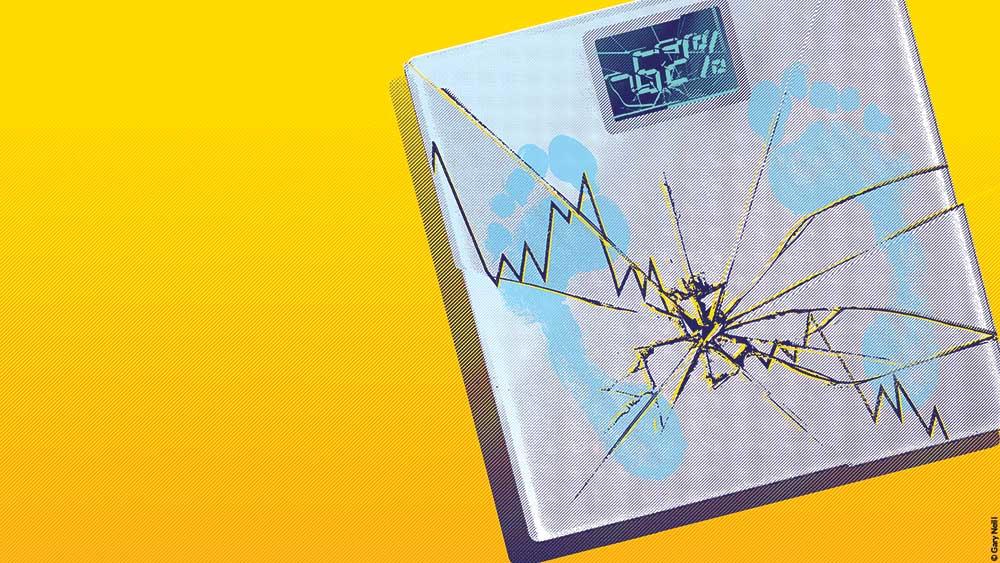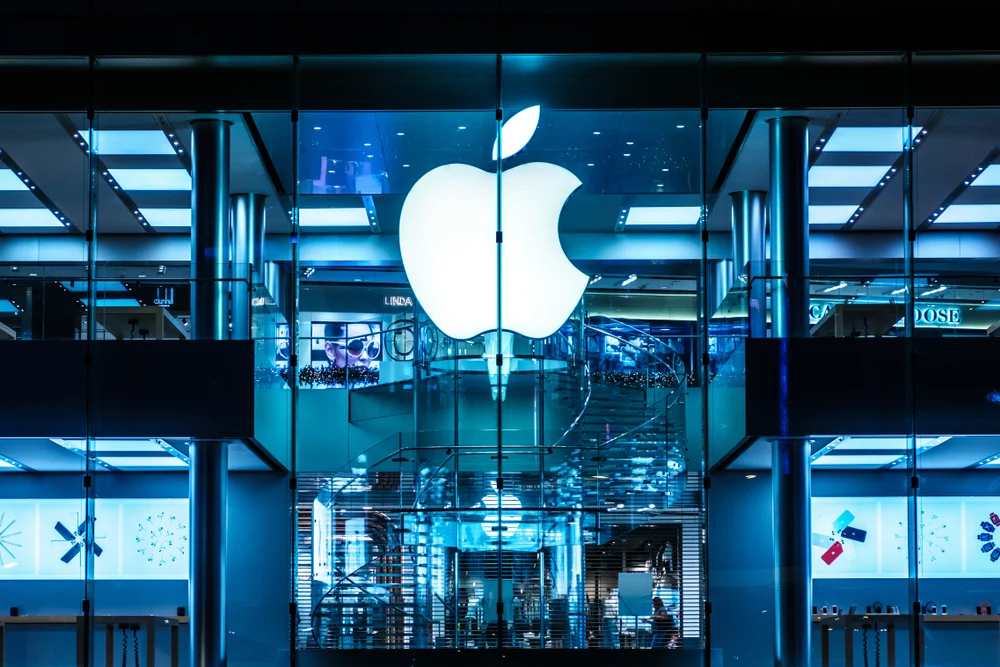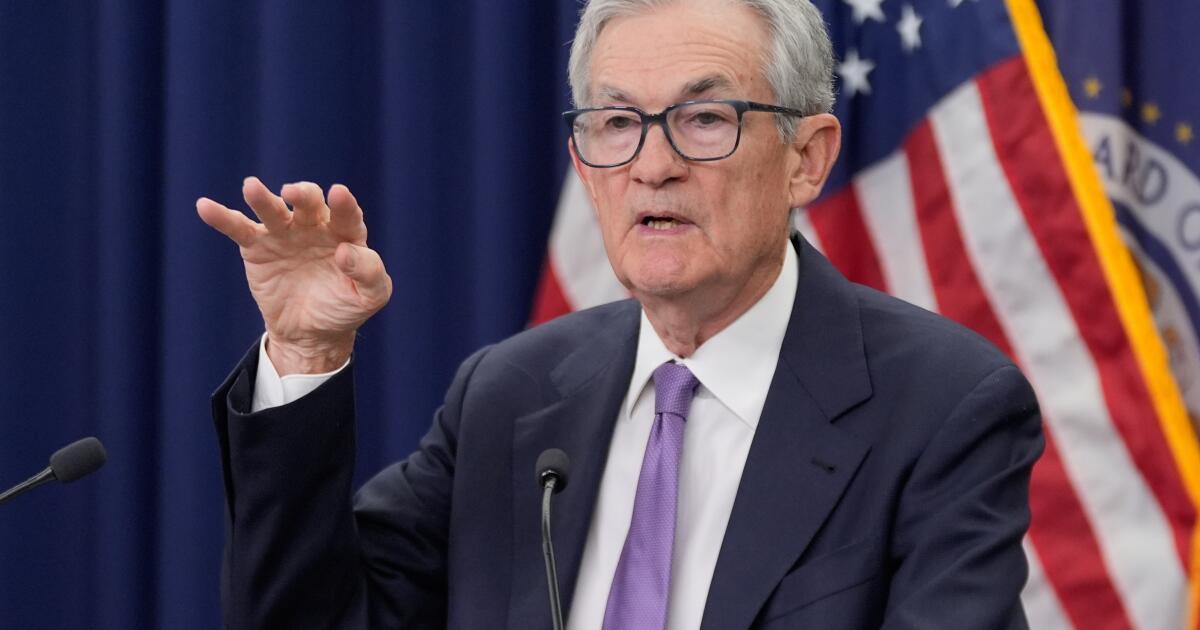Copyright Investor's Business Daily

Wall Street enjoyed a guilt-free feast in 2024 as shares of Novo Nordisk (NVO), Eli Lilly (LLY) and other makers of weight-loss drugs skyrocketed. But a shift in investor appetites then sent key players' stocks into free fall. Is the party over? Weight-loss drugs like Wegovy and Zepbound are still considered wonder drugs. But the market for weight-loss drugs is reeling from giant pharma companies battling it out with nimble newcomers like Viking Therapeutics (VKTX) and makers of knockoffs like Hims & Hers Health (HIMS). The field has also been rattled by the prospect that pills could replace injectable drugs and upend a critical market element: pricing. That's especially true now that the Trump administration is moving to yank down the price of the drugs to more affordable levels. Christoph Dankert, an executive with Carrum Health, a health care network company, sees a mind-boggling future where weight-loss drugs could cost as little as $100 a month, down from the current list prices above $1,000. Battle Over Pricing Of Weight-Loss Drugs "The conversation would change pretty dramatically," Dankert, Carrum Health's chief network officer, told Investor's Business Daily. "This is by and large about the price point in the market. You have to find ways to deliver (weight-loss drugs) at a much, much lower cost compared to what you're doing today. That's the bare minimum." Novo stock has lost about two-thirds of its value since June 2024. Viking Therapeutics, once a highflier and weight-loss darling, is about 52% off its February 2024 peak. Lilly stock has been less hard hit thanks to the company's more diverse product lineup and stronger growth, but the pharma giant's shares still remain about 4% below their August 2024 peak. Yet, there's no denying extreme demand persists for weight-loss drugs. Novo's and Lilly's blockbusters continue to rack up double- and triple-digit sales growth. The disconnect comes down to pricing, a critical issue that came into focus this past week. Under a deal signed Thursday with the Trump administration, Lilly and Novo will sell their weight-loss drugs for a respective $346 and $350 a month on the new direct-to-consumer website, TrumpRx. Those price tags are 68% to 74% below the drugs' list prices. The deal extends to two experimental pills, Novo's oral Wegovy and Lilly's orforglipron. Oral Wegovy will cost $150 a month on TrumpRx. Orforglipron will cost $346. Pills are easier to manufacture than injectable drugs. And they're more palatable for some patients, opening up a massive market of people unwilling to inject themselves. Find Stocks To Watch: From Top IPOs To Large And Small Caps Untapped Market For Weight-Loss Drugs A lot of untapped value beckons in the market for the drugs, experts say. In May, Morgan Stanley estimated weight-loss drugs could be a $150 billion market by 2035. The adoption rate remains low at roughly 3% of eligible patients in the U.S. and about 1% in other countries. "The market penetration of these drugs in weight loss is still fairly low, and in diabetes, where it's higher, it's still low," Brad Stewart, an executive with the advisory firm BDO, told IBD. "There's still a tremendous opportunity from growth just purely from additional patients." Investors in weight-loss drugs are looking for lower prices, better effectiveness and fewer side effects, says Carrum's Dankert. He likened the advance of anti-obesity medications to the advent of statins. The first statin didn't become the market leader. It was the fifth: Lipitor. Lipitor entered a crowded market when it launched in 1997. But the drug quickly grew to dominate the market as it proved to be more effective with fewer side effects than its rivals. "It took a while for the innovation to happen, to really fine-tune the right ones, to reduce the side effects and make them cheaper," Dankert said. "I think that the GLP-1's future, if there is a future, it's going to be one where they could be pretty low-cost, but widely used." Weight-Loss Pills Vs. Injections In other words, it's a show-me story for weight-loss drugs. Stewart says that now that the initial hype has gone by the wayside, the market for weight-loss drugs is beginning to mature. With maturation comes a better understanding of how to improve on the first generation. Weight-loss pills could shift the paradigm, he says. Most experts believe pills won't prove as effective as injectables. But Novo Nordisk is pushing back on that view. In September, the company said 307 patients in a Phase 3 study of oral semaglutide — the chemical backbone behind its weight-loss drug Wegovy — lost an average of 16.6% of their body weight over 64 weeks. The results were comparable with weekly Wegovy shots. "If there were an oral drug with similar efficacy, it would absolutely, fundamentally be game-changing," Stewart said. "Not only would people move to that oral form very rapidly, I think the number of new people coming to the market would increase very rapidly." Benefits Of Oral Weight-Loss Drugs Pills are easier to make than injectables because they don't require companies to make both the medicine and the delivery system, such as a syringe and vial or an autoinjector. "I think, most likely, what you'll see is people transition to begin using GLP-1s, thanks to oral drugs," Stewart said. "Long term, it's likely to have a downward impact on pricing." Jayne Hornung, chief clinical officer for health care technology firm MMIT, says pills could open up a large, previously unavailable market for weight-loss drugs. "I do think there's a subset of the population that just refuses to inject themselves," she told IBD. "There's a market out there, untapped, that could be using the weight-loss medications, but because there's not an oral option available, they haven't gotten onto the bandwagon." Carrum's Dankert sees several hurdles for orals to overcome. Side Effects Of Weight-Loss Pills Like their injectable counterparts, weight-loss pills cause gastrointestinal side effects. In a study of diabetic patients with obesity, Eli Lilly's orforglipron led to an average 9.3% weight loss, compared with 5.3% for a pill form of Novo Nordisk's Wegovy. But analysts said orforglipron led to a higher rate of side effects than Lilly's injected anti-obesity medication, Zepbound. "Better tolerability will be a key differentiator" for second-generation weight-loss drugs, said MetaVia (MTVA) Chief Executive Hyung Heon Kim. MetaVia, whose stock trades around a dollar a share, is working on obesity-treating shots. One mimics the GLP-1 and GCGR hormones. The other targets the GIP hormone. Kim estimates that at least 20% to 30% of people stop using GLP-1-based weight-loss drugs within three months of starting them. He said patients must slowly increase the doses of their anti-obesity meds over time — a practice called titration — to help control the side effects. "It takes about six months for titration in the real world," he said in an interview. "If you don't have insurance (coverage), six months of titration getting up to the optimum dose for yourself, you have to pay out of your pocket. That probably impacts the amount of time that people stay on treatment. It's way too expensive." The Price Of Weight-Loss Drugs Insurance coverage also remains a sticking point. Many commercial plans follow the Centers for Medicare and Medicaid Services, which has repeatedly said it won't cover anti-obesity medications. CMS considers weight-loss drugs cosmetic treatments. That's why drugmakers have focused on testing their weight-loss drugs in other conditions. Novo's Wegovy is approved to lower the risk of cardiovascular events and as a treatment for a liver disease known as metabolic dysfunction-associated steatohepatitis, or MASH, which occurs when fat builds up in the liver over time. Lilly's Zepbound is also approved to treat obstructive sleep apnea, a condition that occurs when the upper airway collapses during sleep. All three conditions are associated with obesity. Both companies also sell their weight-loss drugs under different names — Ozempic and Mounjaro — for patients with type 2 diabetes. MetaVia's Kim says investors need to look at the big picture in obesity treatment. "Last year, anything that had obesity on it went up," he said. "This year, that's not the case. I think it's important (to consider how we look) at the market. ... To me, the overall obesity market should include type 2 diabetes." He estimates that 70% to 80% of people with obesity also have type 2 diabetes. That's why MetaVia's strategy — the same strategy numerous other drugmakers are taking — is to test its drug in patients with obesity and/or diabetes. Is CMS Coverage Coming? CMS could change its tune on obesity drugs, which would open up the floodgates for weight-loss drugs. In recent public comments, CMS Administrator Mehmet Oz said the Trump administration is working "in the middle of a lot of action in that space." "These are market-moving discussions," he said, according to a report from Leerink Partners analyst David Risinger. "So the best thing to say: Everyone's looking at it. ... As a physician, I'm intrigued. We just have to find the right way to do it." Oz noted the Trump administration's recent efforts to lower drug prices. The government unveiled TrumpRx, a direct-to-consumer website that will sell low-cost drugs for cash. Meanwhile, the Inflation Reduction Act, passed by Congress under the Biden administration, allows CMS to negotiate the prices of a bucket of high-cost drugs every year. "I believe by the time the president's term is finished, and I made this commitment to him, 95% of all drugs in America will be at pricing that we feel proud of," Oz said. Costs Of Treating Obesity-Related Diseases BDO's Stewart expects more insurers to cover anti-obesity medications. He argues that diseases like MASH, type 2 diabetes and sleep apnea are downstream effects of obesity. "Those are obviously serious consequences of long-term obesity," he said. "You would want to try and stop that as early as possible in that cycle. ... I think we all can certainly understand the massive, massive cost pressures that (obesity and related conditions) put on the U.S. health care system." Carrum's Dankert says it's great that drugmakers can get coverage for their anti-obesity medicines in patients with related diseases. But "this is more like nibbling around the edges," he said. These diseases aren't going to be the big paradigm shift for weight-loss drugmakers. And they won't "drive a systemic change in how we treat obesity," he said. That will come from widespread coverage for obesity treatment. Under the deal unveiled by the Trump administration, Lilly and Novo will sell their weight-loss drugs for $245 a month to the Centers for Medicare and Medicaid Services. That will allow Medicare, for the first time, to foot the bill for these medicines to treat obesity and related conditions, according to a White House fact sheet. That price compares to the $499 Lilly and Novo charge on their own direct-to-consumer websites and the roughly $350 a month price planned for TrumpRx. MMIT's Hornung says the best way to lower prices is to bring more competition online. "Right now, they're profiting," she said. But if the next generation of weight-loss drugs prove to be more effective or carry fewer side effects, Eli Lilly and Novo Nordisk will have to start competing on price. And it could happen, Hornung predicts, that "these first two drugs are not going to be the market leaders anymore." Novo Nordisk, Eli Lilly Lead The Obesity Pills Race The duopoly now dominating weight-loss drugs, Novo and Lilly, are widely expected to be the first companies to launch weight-loss pills, ushering in the next major phase in the anti-obesity space. "We're very pleased with Lilly's recent industry-leading growth and the potential for our medicines to impact patients across a broad range of human health conditions," a Lilly spokesperson said in a statement emailed to IBD. A Novo Nordisk spokesperson, referring to the expected FDA decision on the company's weight-loss pill, also told IBD in an email: "Our focus remains on long-term growth by meeting diverse patient needs, advancing innovation, and ensuring sustainable supply, not on short-term market fluctuations." There are a lot of moving parts right now for Novo Nordisk, which is reportedly working on a deal that would allow Hims & Hers to sell Wegovy on its telehealth platform. That would be a key move in the ongoing battle with Hims over its compounded semaglutide. Novo also is engaged in a takeover fight with Pfizer (PFE) to buy small biotech stock Metsera (MTSR). Novo Nordisk has cut its outlook twice this year, citing the impact of "unlawful compounding." Novo also announced layoff plans in September to eliminate 9,000 jobs, or 11% of its workforce. BDO's Stewart doesn't expect compounders to exit the weight-loss scene anytime soon. Companies are focusing on personalized doses of anti-obesity medications, a loophole in the FDA rule that would normally prevent them from making copies of branded drugs. "If history is any indicator, they will utilize every opportunity to work through that loophole," he said. "They have an incentive to continue to do that." Lackluster Clinical Data Besides the growing pressure on weight-loss drug pricing, the market faces another challenge: Clinical data has been lacking recently. Skye Biosciences (SKYE) stock, which trades under 2 per share, collapsed 60% on Oct. 6 after its anti-obesity medication failed to lead to statistically significant weight loss compared with a placebo. One promising finding, though, was that the combination with semaglutide appeared to outperform semaglutide alone, RBC Capital Markets analyst Brian Abrahams said in a report. Notably, the Skye Biosciences drug uses a different mechanism: blocking the cannabinoid receptor in the brain. The results cast doubt on whether tamping down on CB1 can have an impact on obesity. Meanwhile, Pfizer has scrapped multiple weight-loss drug flops, while Novo undercuts its efforts to buy Metsera. Metsera's approach, which utilizes the GLP-1 mechanism, has shown promise as a weekly or monthly injection. Only time will tell which treatments will prove most useful, experts say. MMIT's Hornung says the market for anti-obesity medications is far from mature. But the excitement that bolstered the market in 2024 is gone. "I think there was an overzealousness of investors in the beginning," she said. Patients and investors are "waiting for the next best option that's coming down the pike." Is It Time To Buy Weight-Loss Stocks? But it's important to note that the two leading stocks shouldn't be considered buys at this point. On a technical basis, Lilly shares are working on a consolidation with their record high at 972.53 as the buy point. Technical analysis can help investors manage risks by buying and selling stock at the right time. Lilly stock closed Thursday at 937.44. It has a decent Relative Strength Rating of 80 on a 1-99 scale, indicating it has outperformed 80% of stocks in the past 12 months. Novo, though, is a laggard in stock terms. Shares are trapped well below their key moving averages, highlighting their extended decline. Novo stock has an RS Rating of just 12. Hims stock is in a similar position as Novo, trading below its 50-day and 200-day moving averages. Viking Therapeutics stock broke out of a cup-with-handle base on Oct. 30, but shares later fell as much as 7% below their entry. Savvy investors are encouraged to cut their losses when a stock falls 7% to 8% below its buy point. Viking shares have since returned to their buy zone. But investors should note the stock's mediocre RS Rating of 56. Follow Allison Gatlin on X/Twitter at @AGatlin_IBD. YOU MAY ALSO LIKE: Why Ionis Stock Hit A Six-Year High And Snagged A Price-Target Hike How To Research Growth Stocks: Why This IBD Tool Simplifies The Search For Top Stocks Options Trading: How To Start Using Options, How To Manage Risk



